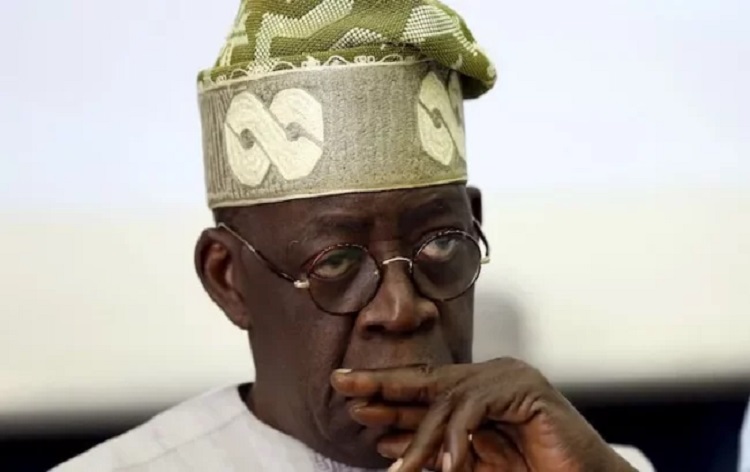On account of an earlier order by a US court that the American Federal Bureau of Investigation(FBI) and Drug Enforcement Administration (DEA) should release confidential information gathered from investigating President Bola Tinubu for a drug-related case in the 1990s, the presidency, on Sunday, urged Nigerians to dismiss the ruling.
In a statement on Sunday, the presidency said “There is nothing new to be revealed”, and the said report by “Agent Moss of the FBI and the DEA report have been in the public space for more than 30 years.”
The Special Adviser to the President on Information and Strategy, Bayo Onanuga, said the reports did not in any way “indict the Nigerian leader,” adding however, that the president’s “lawyers are examining the ruling.”
Judge Beryl Howell, in the ruling, said protecting the information from public disclosure is “neither logical nor plausible.”
An American, Aaron Greenspan, had filed a suit in June 2023 under the Freedom of Information Act (FOIA) against the Executive Office for US Attorneys, Department of State, Federal Bureau of Investigation(FBI), Internal Revenue Service (IRS), Drug Enforcement Administration (DEA), and the Central Intelligence Agency (CIA).
Mr Greenspan accused the law enforcement agencies of violating the FOIA by failing to release within the statutory time “documents relating to purported federal investigations into” President Tinubu and one Abiodun Agbele.
In his FOIA request, the American sought criminal investigative records about four named individuals “allegedly associated with the drug ring: Bola Ahmed Tinubu, Lee Andrew Edwards, Mueez Abegboyega Akande, and Abiodun Agbele.”
After the requests, the US agencies issued “Glomar responses”, refusing to confirm or deny whether the requested records exist.
Mr Greenspan contested those responses at the Department of Justice’s Office of Information Policy (“OIP”). The OIP affirmed the agencies’ refusal to confirm or deny the existence of the requested records.
The American then filed a lawsuit on 12 June 2023, naming the FBI, DEA, IRS, EOUSA, CIA and Department of State as defendants and challenging each agency’s response to the separate FOIA requests.
On Tuesday, the judge noted that since it was acknowledged that Mr Tinubu was a subject of an investigation involving both the FBI and DEA, “the claim that the Glomar responses were necessary to protect this information from public disclosure is at this point neither logical nor plausible.”
The judge said the ‘Glomar’ responses asserted by the FBI and DEA are “improper and must be lifted.”
He struck down the exemptions previously used to redact the files, and ordered the FBI and DEA to remove the redactions and release the files again.
The judge ordered the FBI and DEA to file jointly, by 2 May, a report on the status of any outstanding issues in this case, as described in the accompanying order.
How drug ring members were busted and linked to Tinubu’s funds
Part of the documents submitted by Greenspan to court to back his FOIA case were a verified complaint and accompanying affidavit, filed in the Northern District of Illinois by the DOJ on 26 July 1993.
The documents sought the civil forfeiture of Tinubu’s funds held by First Heritage Bank, allegedly connected to the drug trafficking investigation.
The affidavit by the Department of Treasury’s Internal Revenue Service (IRS) Special Agent Kevin Moss, who was involved in the investigation, detailed the drug trafficking activities of Agbele, which provided the ground for seeking the forfeiture of Tinubu’s funds. It also shared insights into how Mr Agbele was arrested while selling white heroin to the person not known to him to be an undercover agent.
It stated that upon arrival in the United States, “Agbele identified Akande (who has also been linked to Mr Tinubu) as his uncle and stated that Akande provided him (Agbele) an apartment in Hammond, Indiana,” citing “investigating agents of DEA” as the source of this information.
Subsequently, Agbele was arrested and agreed to cooperate” with the investigation.
The affidavit also stated that further investigation by DEA disclosed a lease application completed by Mr Agbele.
Mr Moss’s affidavit confirmed that both the FBI and DEA investigated Tinubu in the wider probe into the drug trafficking activities of Mr Agbele and other members of his ring.
It confirmed that “there is probable cause to believe that funds in certain bank accounts controlled by Bola Tinubu were involved in financial transactions” in violation of US laws “and represent proceeds of drug trafficking.”
It stated that seeking to target Mr Tinubu’s funds arose from “investigation of money laundering of the proceeds of a heroin distribution organisation in the Chicago area.” The clues relied on were said to include “information provided by Special Agents of the IRS, DEA, (and) FBI.”
Although Tinubu forfeited the suspected funds, he has consistently denied wrongdoing. He has also never been charged with any criminal offence in the case.
Premium Times





